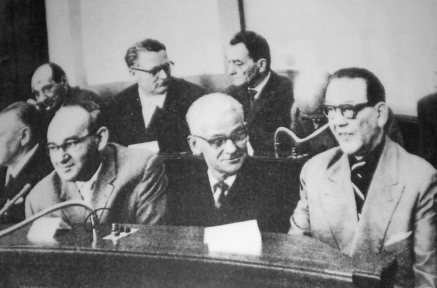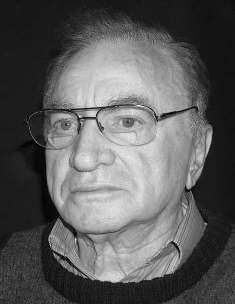Holocaust Education & Archive Research Team |
|
Survivor Stories
Holocaust Survivors Chelmno Survivors Righteous Gentiles Holocaust Recalled
| ||||||
Sobibor survivor Thomas Tovi Blatt confronts Death Camp Commandant Karl Frenzel (forced labour section) in 1983
Thomas Blatt: Here you are drinking beer. With that smile on your face you could be anybody’s neighbour, anybody’s fellow sporting club member. But you are not anybody. You are Karl Frenzel, the SS commandant. You ranked third in the chain of command at the extermination camp of Sobibor. You were the commandant of Lager 1. Do you remember me?
Karl Frenzel: Not exactly you were a small boy then
Thomas Blatt: I was fifteen years old. I survived because you made me your shoeshine boy. Besides me nobody survived; not my father, not my mother, not my brother, none of the two thousand Jews from my town, Izbica.
Karl Frenzel: That was terrible, just terrible………
Thomas Blatt: At least a quarter- million Jews were murdered at Sobibor. I survived why would you want to speak with me?
Karl Frenzel: I would like to apologise to you
Thomas Blatt: You want to apologise to me?
Karl Frenzel: I would like to apologise. Nothing can be done about the victims. What happened - happened. We can’t change anything about that. But I would like to extend my personal apologies to you.
I am not angry with you and the other witnesses, those who already testified and those who are still to come.
Thomas Blatt: You would like to apologise?
Karl Frenzel: I can only say it again in tears. Not only am I beside myself now, no back then too. I was greatly bothered by it all.
Thomas Blatt: But you didn’t prevent any of it from happening. You took part in it.
Karl Frenzel: You don’t know what went on inside of us. You don’t understand the circumstances in which we found ourselves.
Thomas Blatt: And we, and our circumstances?
Karl Frenzel: I spent sixteen and a half years in prison. I suffered a lot and I thought long about justice and injustice.
Thomas Blatt: Were you an anti-Semite or did you do these things because you were ordered to do them?
Karl Frenzel: I was no anti-Semite but we had to do our duty. For us this was a bad time.
Thomas Blatt: Duty. That’s what it always comes down to, duty. Why did you club my father to the ground immediately upon arrival? Was that your duty too?
Karl Frenzel: I don’t remember.
Thomas Blatt: Do you remember Cukerman?
Karl Frenzel: Yes, he was the cook. At one time, five or eight kilograms of meat were missing. When we searched the kitchen, the meat was found. That’s why I beat him.
Thomas Blatt: And the son?
Karl Frenzel: He came to me and said, “My father didn’t hide the meat, I did.” I said, “Then you’ll get twenty-five lashes with the whip too.”
I would like you to know, I was always fair. I never punished anyone who didn’t do anything wrong.
Thomas Blatt: So you were always fair. Philip Bialowicz testified that you caught his fifteen year old friend stealing a can of sardines. You took him to Lager III, the crematorium and shot him.
Karl Frenzel: That wasn’t me.
Thomas Blatt: It wasn’t you? And what happened to the Dutch Jews?
Karl Frenzel: A Polish Kapo told me that several Dutch Jews were preparing a revolt and I reported it to Commandant Niemann. He ordered the execution of seventy- two Jews.
Thomas Blatt: And you were the one who took them to the gas chamber?
Karl Frenzel: No, not I
Thomas Blatt: Do you remember the little Kapo Berliner? Rumour had it you gave permission to kill him. Is that true?
Karl Frenzel: I remember it that way too. My Kapo at the train station command came to me and told me about Berliner. Then the Ukrainian guards said, “What shall we do with him?”
Maybe, I said, “Kill him, or something like that, the kind of thing one says at a moment when one is not alone.
Thomas Blatt: You had children of your own. When you saw small children, five years old, one year old, one week old – marked for death, didn’t you feel something inside?
Karl Frenzel: I never touched any children, even though other witnesses have accused me of it. I want you to know there was a small child and her mother. Wagner wanted to send them to the gas chamber. I arranged it so they wouldn’t have to go to the gas chamber. The mother worked in the laundry. The girl was about ten years old.
Thomas Blatt: Neither one survived the camp
Karl Frenzel: I don’t know. But it is incomprehensible to me that I should be accused of having killed children.
Thomas Blatt: Tens of thousands of children were killed at Sobibor
Karl Frenzel: I condemn what happened to the Jews. I understand how you must feel. You cannot forget, neither can I. I dream about it at night; for sixteen years in prison. Just as you dream about it at night.
Thomas Blatt: When did you join the Party?
Karl Frenzel: 1930. Before that I was a member of the communist carpenters association. My father was a Social Democrat.
Thomas Blatt: Why did you join the Party?
Karl Frenzel: Because of the unemployment.
Thomas Blatt: What did your father say about this?
Karl Frenzel: We were adults and wouldn’t have listened anyway. Concerning unemployment, the situation then was just as it is today. People join the Greens or the Rockets or whatnot. It was exactly like that then. Only we were not as bad as they are today.
Thomas Blatt: What was the situation like before the “seizure of power” at the time when you joined the Party?
Karl Frenzel: I was apprenticed as a carpenter, and after taking the qualifying exam I was unemployed. And the Party promised that there would be jobs, after the seizure of power.
Things actually did get better after 1933. But the whole problem which you are probably driving at, the anti-Jewish slogans, to that we didn’t give much thought. When I got married in 1934, we bought our furniture from a Jewish furniture merchant.
Thomas Blatt: Were you appalled by the first anti- Jewish measure?
Karl Frenzel: I was appalled by that and so was my brother, who joined the Party in 1929. I had nothing to do with Kristallnacht in 1938. There were no Jews in our immediate neighbourhood.
My first girlfriend was Jewish, at eighteen. The relationship dissolved when her father heard that I was a Party member. Her father was the editor of the Social Democratic newspaper Vorwarts. In 1934 her family emigrated to America. . Thomas Blatt: I guess everyone had their good Jews in those days. Did your girlfriend come from a religious family?
Karl Frenzel: No. After all she was a Jew.
Thomas Blatt: Did you go to church?
Karl Frenzel: Yes, frequently.
Thomas Blatt: Was there never a time when your religious views and your political views came into conflict with each other?
Karl Frenzel: No. After all we were German Christians (a sector of the Protestant Church close to the Nazi Party). My children were all baptised. I was married in a church.
My brother was a theology student. My wife and I went to church – if not every Sunday, at least every other or third Sunday – for the children’s sake.
Thomas Blatt: And even today you, as a Christian, have no problem with that time?
Karl Frenzel: I have nothing to hide, after all. I am sorry that I was part of that gang then.
Thomas Blatt: Back then you had no regrets about it?
Karl Frenzel: We found out about it when we arrived in Sobibor. When we received our orders we were told it was a work camp. What we had to do was guard the camp.
Thomas Blatt: When you returned home on furlough, did you talk with your family about what was going on?
Karl Frenzel: No. That was a state secret. It was forbidden to talk about it even with one’s closest family on penalty of concentration camp or death.
Thomas Blatt: Why didn’t you ask to be transferred – to the front, for example?
Karl Frenzel: I wanted to get away. I asked my brother to effect my transfer. But it didn’t work. So, all I could do was do my duty.
Thomas Blatt: And were you not torn between your “duty” and your Christian faith?
Karl Frenzel: Oh yes, of course! Ever since 1945 I have been cursing the Nazis – for everything, for what they did, and everything they stood for. I fought against the devil. Since 1945 I have refrained from any involvement in politics.
Thomas Blatt: Sobibor – the extermination of 250,000 Jews – that was your duty?
Karl Frenzel: We had to do our duty. I am sorry about what happened there, but I cannot make what’s done undone. I would like to ask the forgiveness of all of them.
The things that have stayed with you have also stayed with me. And I too, have often thought about it, about justice and injustice, and I have come to the conclusion that what happened then was an injustice. I condemn that time.
Thomas Blatt: Duty and justice and injustice. What does that say about the death of a human being, a quarter- million human beings?
Karl Frenzel: I can well sympathise. I do not despise you by any means. What you went trough, you can never forget. And what we went through – I too cannot forget. Just as you dream about it at night, I dream about it at night.
Thomas Blatt: What does your family, your children say about it all today?
Karl Frenzel: My wife is no longer alive. The Russians destroyed her in 1945. They raped her then she had abdominal typhus, of which she died.
Thomas Blatt: And your children?
Karl Frenzel: The children detest it all and denounce it as a crime. But they still are on my side. They don’t detest me. They condemn all that happened. They also saw the Holocaust film. We had a discussion then.
Thomas Blatt: Do you think a film can recreate this?
Karl Frenzel: Not recreate. No.
Thomas Blatt: The reality was worse.
Karl Frenzel: …….. much worse. Something like this cannot be recreated. I beg you to see me from a different perspective, other than Sobibor. I have much on my conscience, many human lives. Not one, no 100,000 human lives are on my conscience.
Thomas Blatt: How do you respond when Germans say that it was not true, that it never happened?
Karl Frenzel: When my children and friends ask me whether it is true, I tell them yes it is true. And when they say, but this is impossible, then I tell them again, it is really true. It is wrong to say it never happened.
Thomas Blatt: Then why don’t you go to the newspapers and tell them, I was there, I worked there and it is true?
Karl Frenzel: If I were to go there and tell them that I was part of it and that all of it is true – these five and a half million Jews were murdered – I would be afraid.
Thomas Blatt: Of whom?
Karl Frenzel: Of neo- Nazis
Thomas Blatt: Are they that strong?
Karl Frenzel: No, they are weak and should be outlawed
Thomas Blatt: If they are that weak, why are you afraid of them? Why don’t you tell? You have much to tell the world.
Karl Frenzel: They are here and there. If I went to the press – they have their connections.
Thomas Blatt: Tell me again, why did you want to speak to me?
Karl Frenzel: I wanted to apologise to you in person for all that happened then. If you would accept my apologies in the name of the victims it would in some small measure be a comfort to me. I wanted to have a heart –to-heart talk between two human beings.
I can understand how you feel and that you harbour certain hatred against us. I don’t hold that against you. I would feel the same way.
Thomas Blatt: Do you want to ask me anything else?
Karl Frenzel: That’s all. It is, was my heart’s desire to have a heart-to-heart talk – and that you should see me in a different light, not as a member of the SS, but as a civilian, now forty years later.
(to be continued)
Sources:
From the Ashes of Sobibor by Thomas Toivi Blatt published by Northwestern University Press 1997 Wiener Library – London Holocaust Historical Society IWM London
Copyright 2012 Victor Smart & Chris Webb H.E.A.R.T
|

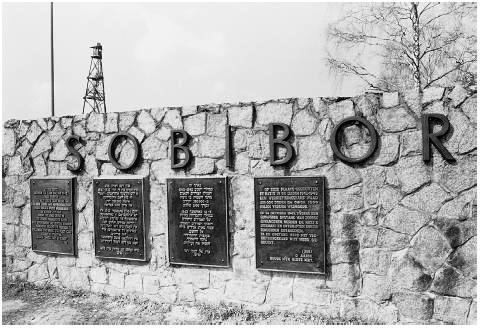
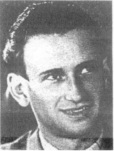
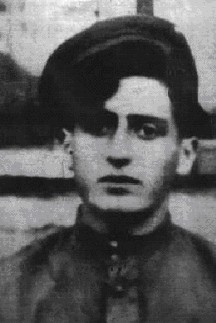
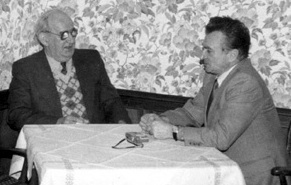
%20with%20Erich%20Bauer%20in%20Italy.jpg)
